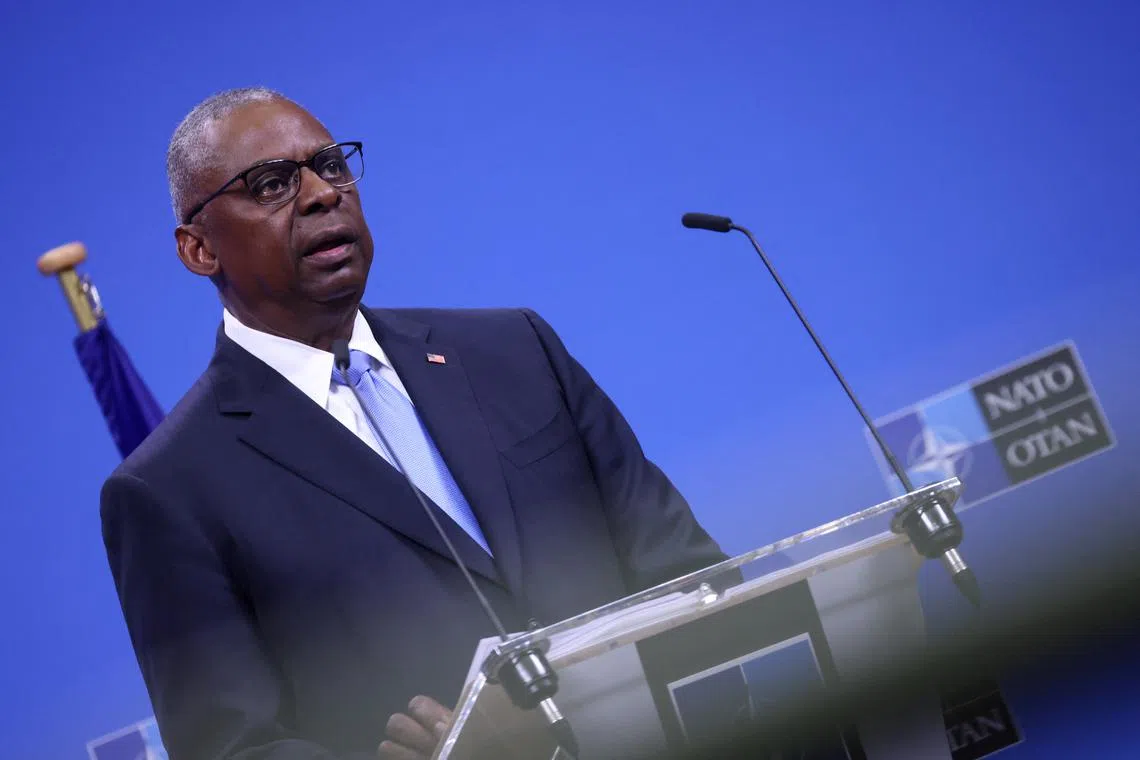Hezbollah-Israel conflict not inevitable, says US defence secretary
Sign up now: Get ST's newsletters delivered to your inbox

Defence Secretary Lloyd Austin says the US wants tensions along the Israel-Lebanon border "resolved in a diplomatic fashion".
PHOTO: REUTERS
MANILA – US Defence Secretary Lloyd Austin said on July 30 he does not believe a fight is inevitable between Hezbollah and Israel, though he remained concerned about the potential for escalation after a deadly rocket strike in the Israel-occupied Golan Heights.
Tensions have worsened
Israel accused Iran-backed militant group Hezbollah and vowed a harsh response. Hezbollah denied any involvement.
The United States has been leading a diplomatic effort to deter Israel from striking Lebanon’s capital Beirut or major civil infrastructure in response to the attack, five people with knowledge of the drive said on July 29.
Hezbollah and Israel have been trading fire across the Lebanese-Israeli border since October, their worst conflict following a war in 2006. The hostilities, sparked by the Gaza war, have so far been largely confined to areas near the frontier.
Though both sides have previously indicated they do not seek a wider confrontation, the hostilities have prompted concerns about the risk of a slide towards a wider, more destructive conflict between the heavily armed adversaries.
“While we’ve seen a lot of activity on Israel’s northern border, we remain concerned about the potential of this escalating into a full-blown fight. I don’t believe that a fight is inevitable,” Mr Austin said.
“We’d like to see things resolved in a diplomatic fashion,” he added during a joint news conference in Manila, following security talks between himself, US Secretary of State Antony Blinken and their respective Philippine counterparts.
The Israeli military said it struck around 10 Hezbollah targets in southern Lebanon overnight and killed one of the group’s fighters – attacks that appeared to be in keeping with the pattern of violence over the last nine months.
Hezbollah confirmed one of its fighters was killed.
Two Israeli officials said on July 29 that Israel wanted to hurt Hezbollah
Some flights at Beirut’s international airport have been cancelled or delayed this week due to the heightened tensions.
Hezbollah has denied firing the rocket that killed the young people in the village of Majdal Shams. It said on July 27 it fired a missile against a military target on the Golan, a border region Israel seized from Syria in 1967.
Hezbollah began firing across the border into Israel last October in what it says is solidarity with Palestinians and its Islamist militant ally Hamas. Tens of thousands of people have since fled or been evacuated from towns and villages on both sides of the frontier.
Since October, Israeli strikes have killed around 350 Hezbollah fighters in Lebanon and over 100 civilians, according to security and medical sources and a Reuters tally of Hezbollah death notifications.
Israel says 23 civilians and at least 17 soldiers have been killed in Hezbollah attacks since October. REUTERS


